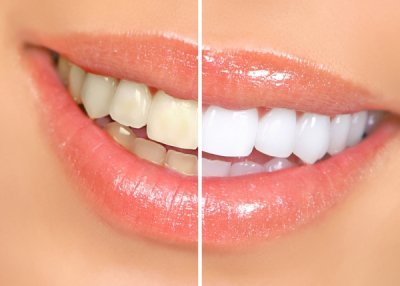As this video demonstrates, teeth stains make your smile look dull and yellow and can leave you feeling self-conscious. Fortunately, through cosmetic dentistry, even the most severe stains can be treated with teeth whitening , bonding, and porcelain veneers. Are your teeth stains sending the wrong message about you? Here are some of the things your teeth stains could be saying about your oral health.
You have tooth decay.
In early stages, tooth decay can present as teeth staining. Discolored patches may appear on the surfaces of the teeth where decay is starting, and the affected areas of the teeth may look dull. As decay becomes worse, black and brown spots may occur in the area of the decay. If you’ve already experienced decay and have restorations, like fillings, where the decay was present, dark spots and discolorations may appear around the restoration when it begins to deteriorate. Getting treatment for the decay plus teeth whitening to remove the stains can help.

You’ve been on antibiotics.
Certain antibiotics, particularly tetracycline and related medications, cause staining. Antibiotic-related teeth staining typically appear as deep yellow-brown or may even take on blue-gray color. This kind of staining is usually deep in the tooth, below the surface level, and it can be difficult to treat with traditional teeth whitening. Your dentist may recommend bonding or veneers to treat these deep stains.
You’re getting older.
Teeth naturally become less white over the years due to the aging process. A lifetime of coffee, tea, red wine, and berries also makes staining worse. Having yellowed teeth ages you, so you may look older than your age if you don’t whiten your smile. Age-related stains usually respond well to teeth whitening.
Don’t let teeth stains make you hide your smile. The dentists at University Associates in Dentistry can help say goodbye to stains and hello to whiter, brighter teeth again. Make your appointment for cosmetic dentistry in Chicago by calling (312) 704-5511.



